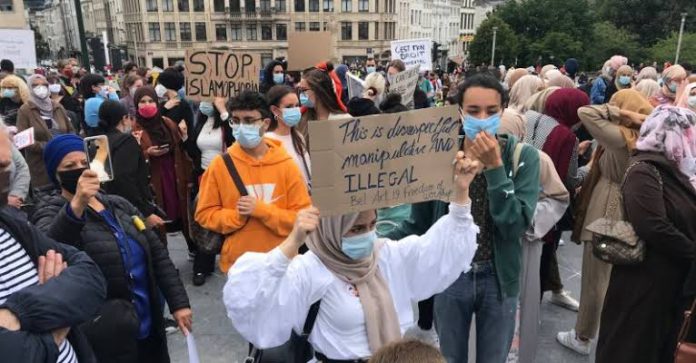Fresh protest looms in DR Congo as Political parties as well as campaign groups have vowed over triggered plans to name a figure accused by the opposition of helping former president Joseph Kabila to rig past elections.
A nationwide demonstration for July 13, with “strict observance” of coronavirus precautions has been called by Lamuka; an opposition coalition yesterday.
“This will be preceded on Thursday by a march in the capital Kinshasa, which President Felix Tshisekedi’s Union for Democracy and Progress (UDPS) announced earlier this week.,” AFP reports.
Meanwhile, the Lay Coordination Committee (CLC), which is close to the powerful Catholic church, has called for a “great peaceful protest march” in major cities on July 19, along with other grassroots groups.
The CLC staged a march last Saturday that drew several hundred supporters before it was dispersed by police on its arrival outside parliament.
The demonstrations have been triggered by a decision by the National Assembly, which is dominated by Kabila supporters, to appoint Ronsard Malonda as chairman of the Independent National Electoral Commission (CENI).
Malonda, currently CENI’s secretary-general, is accused by Lamuka of “abetting every stolen election since 2006”.
“The protests have been scheduled while Tshisekedi has still to approve Malonda’s appointment. The largest country in sub-Saharan Africa, the Democratic Republic of Congo has been notoriously volatile since it gained independence from Belgium 60 years ago this month. Tshisekedi took office in January 2019 in the country’s first-ever peaceful political transition.
“But he did so after elections roiled by accusations that the results were rigged to deny Tshisekedi’s rival, Martin Fayulu, of victory. Tshisekedi has to govern in coalition with supporters of his predecessor Kabila, who have a huge majority in parliament.
“Kabila stepped down after 18 years in power and still wields influence behind the scenes. The coalition was rocked last month over judicial reforms put forward by Kabila allies that would define the powers of judges — a move that critics say is a ploy to muzzle the judiciary. The country has declared a “state of emergency” to tackle the coronavirus pandemic. The measures, which were extended for an additional 15 days on Monday, include a ban on gatherings of more than 20 people,” AFP reports.
Photo Source: Daily Sabah (DS)











